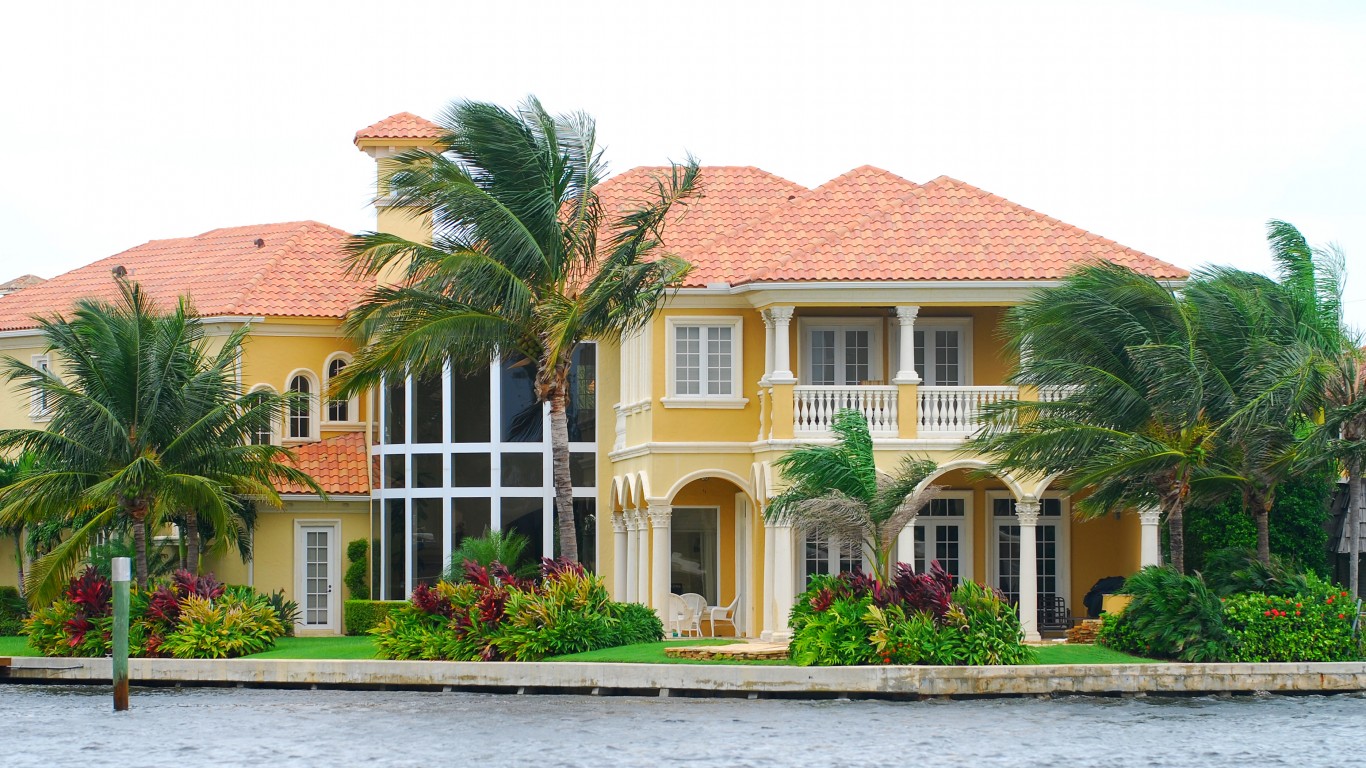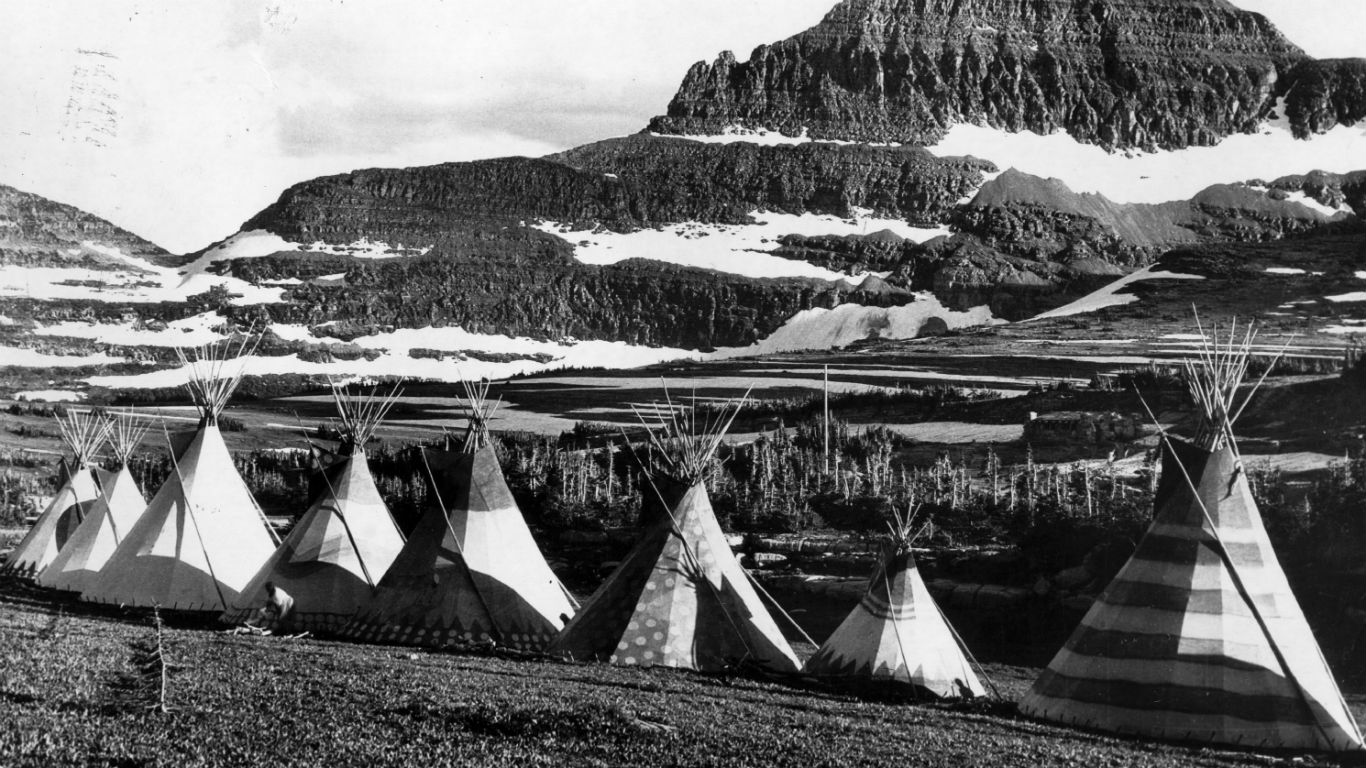
In 1896, the highest peak in North America was named Mount McKinley after presidential candidate William McKinley, who’d never once set foot in Alaska. There was only one problem — the mountain already had a name, Denali, given by the Athabascan people native to the area. On Aug. 30, 2015, the mountain’s name was officially changed back to Denali, in honor of the indigenous people of Alaska and of the mountain’s importance to them.
Indigenous place names often carry with them a history, tell different stories, or relate to the geographic area. 24/7 Tempo compiled every state name that has a Native American origin. While some states were given the native name for a geographic feature in the area, many states were named after the tribe who lived there.
It should be noted that many place-name etymologies — not just those involving Native American languages — are disputed, and that widely varying spellings are sometimes given for the original forms of the names. The etymologies and spellings given here are commonly accepted, however.
Recognizing traditional names offers acknowledgement to Native American cultures and does a small part in the preservation of those cultures. Today Native Americans residing on reservations in the United States endure some of the country’s worst living conditions. Here are America’s 50 worst cities to live in.
Click here to read about every state with a Native American name
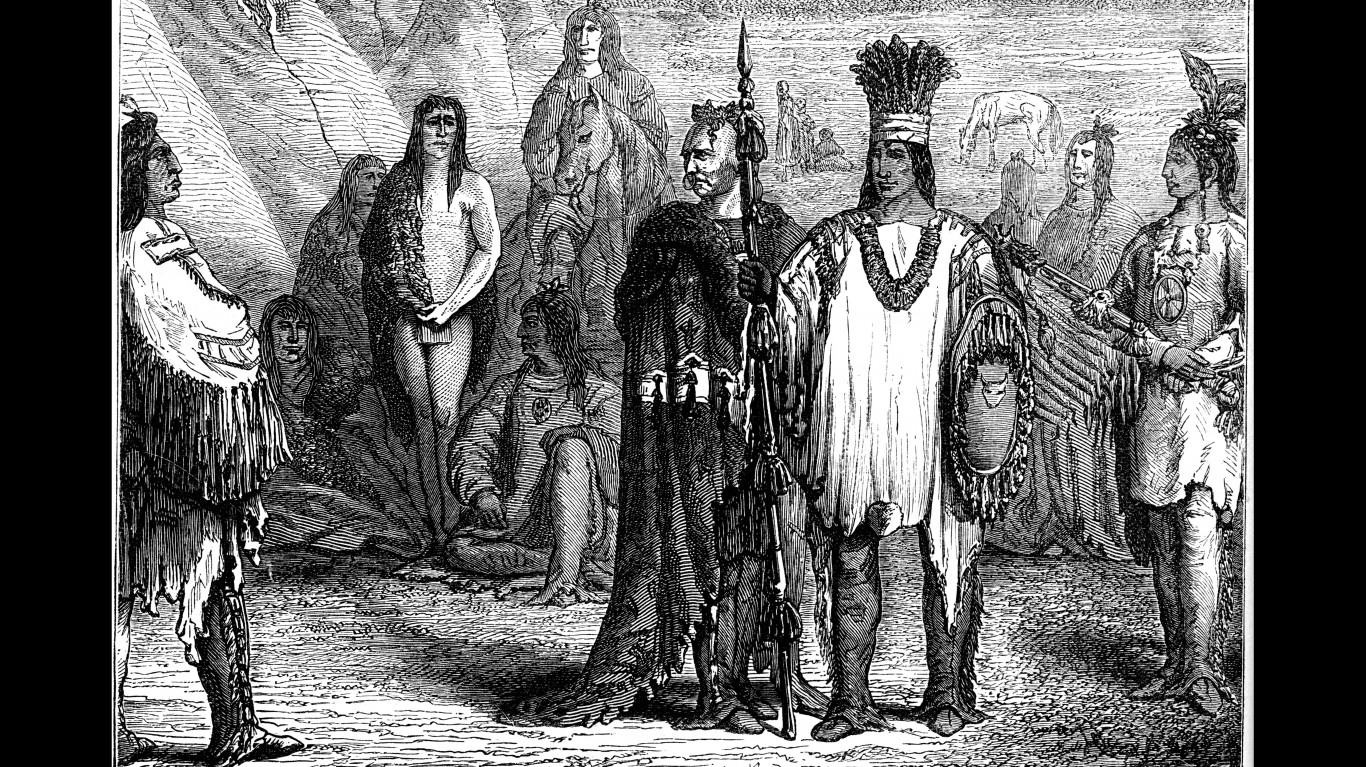
1. Alabama
Alabama was named after the Albaamaha tribe, who were part of the Creek Confederacy. The word appears to be a combination of two Choctaw words, alba (“plants”) and amo (“to cut or gather”), and it’s theorized that the Choctaws described their neighbors — who were known to practice agriculture — as albaamo (“plant gatherers”) and the name stuck.
[in-text-ad]
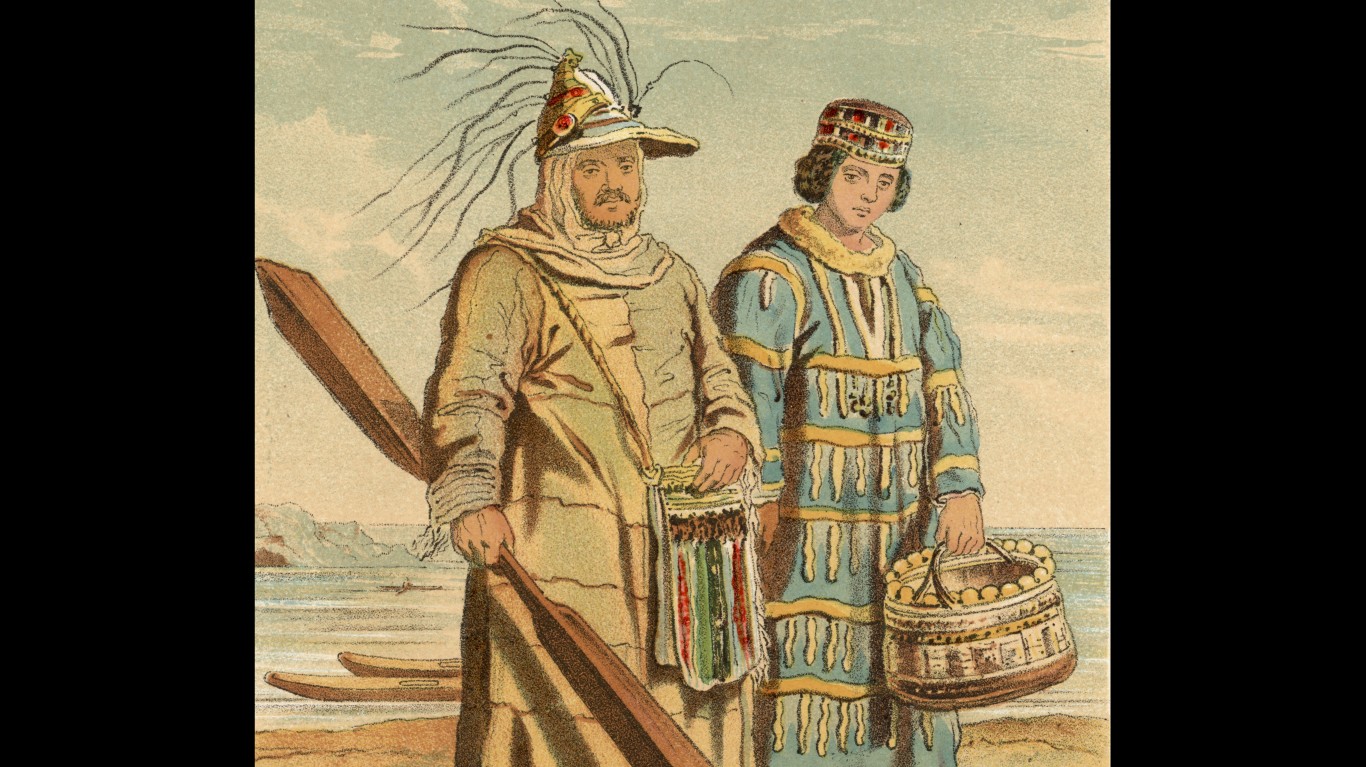
2. Alaska
Natives of the Aleutian Islands, the Unangan, called the landmass to their east alaxsxaq, which means “place the sea crashes against.”
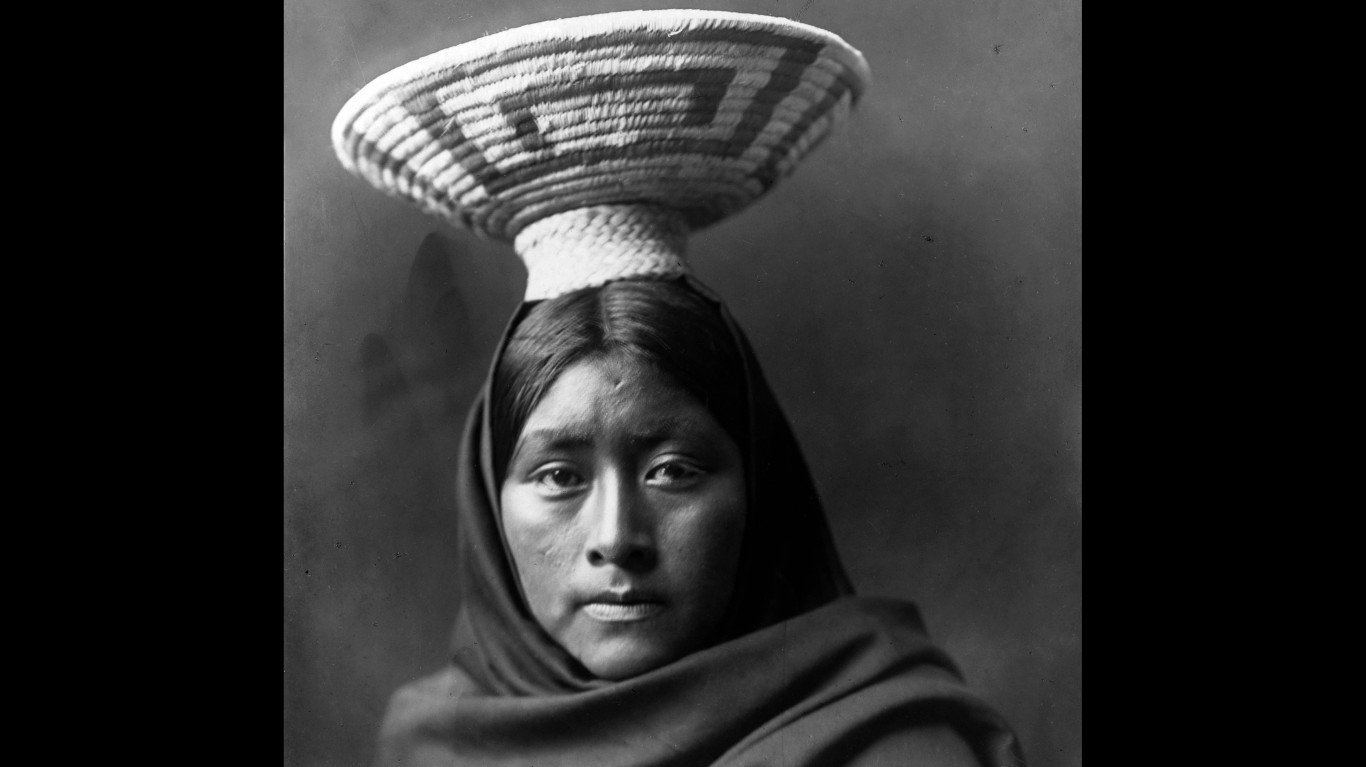
3. Arizona
Although theories exist attributing the state’s name to a Basque word, another prevailing theory attributes the name to a Spanish corruption of the Tohono O’odham word alishonag, which means “having a little spring.”
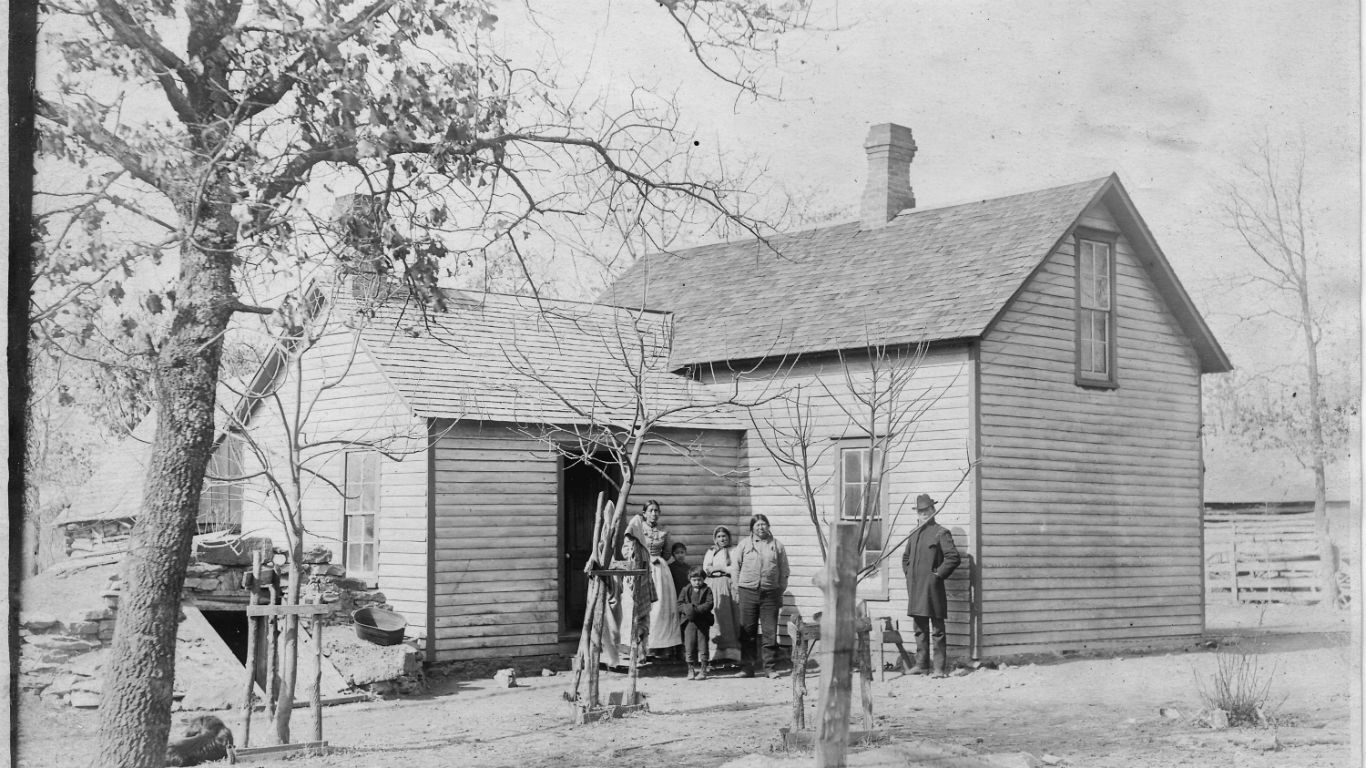
4. Arkansas
Acansa was a Quapaw town in what is now Arkansas. The word means “southern place,” but it also became the name that settlers in the area used to refer to the Quapaw.
[in-text-ad-2]
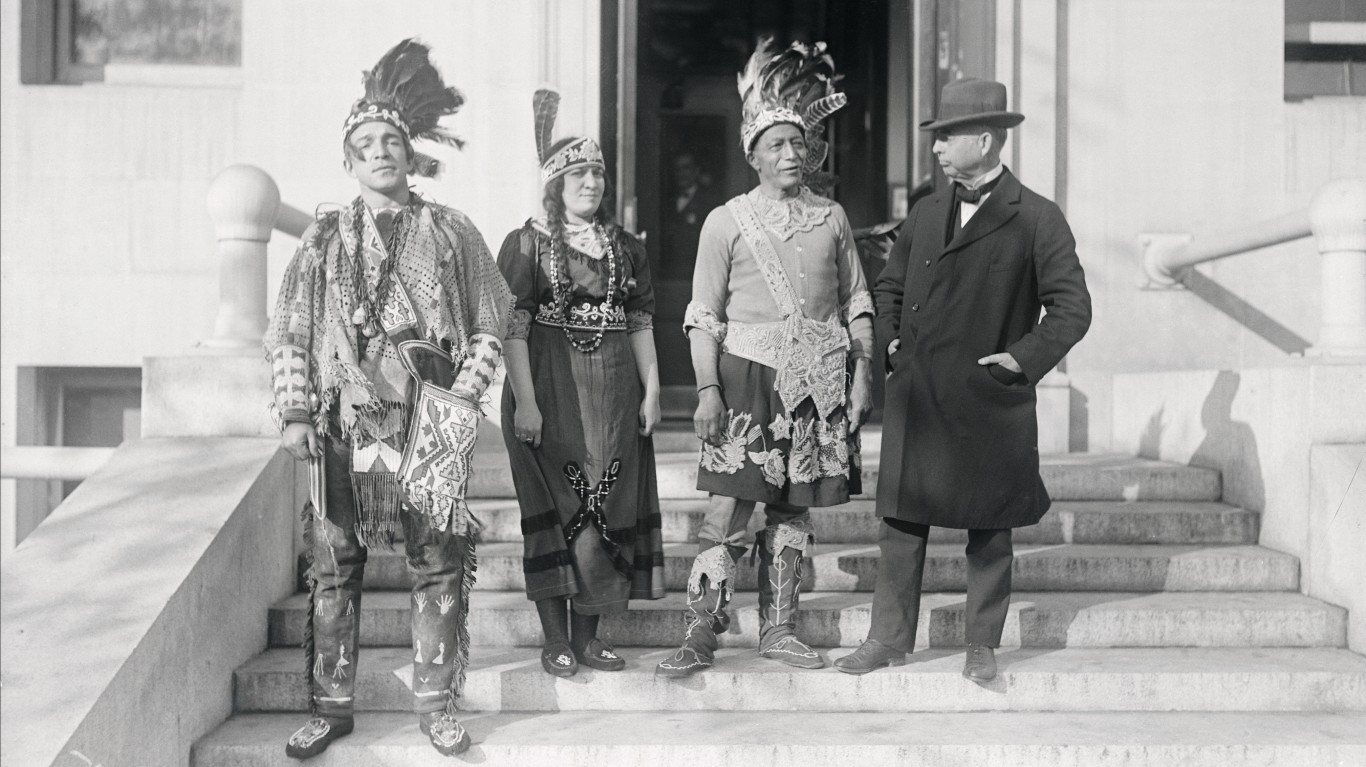
5. Connecticut
Connecticut comes from the Mohegan name for the Connecticut River, quinnitukqut, which means “beside the long tidal river.”
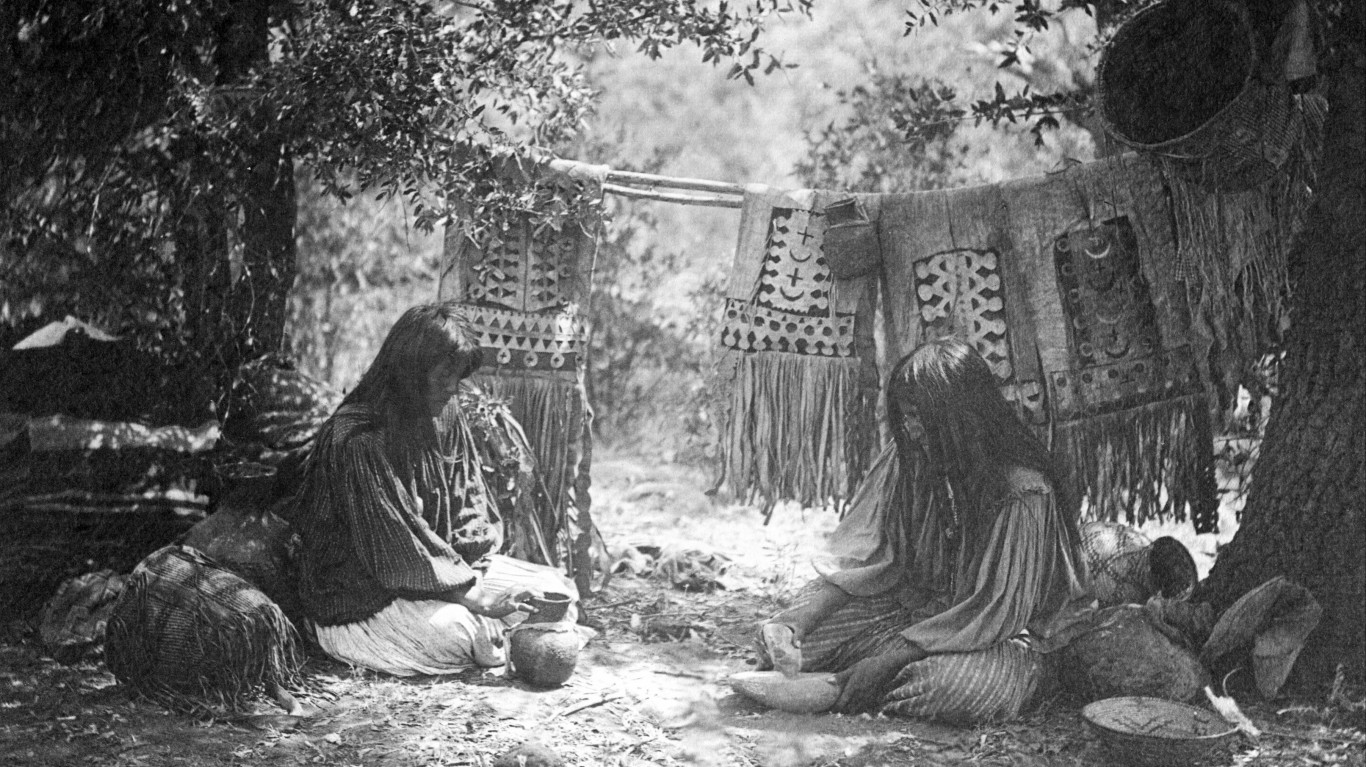
6. Idaho
Numerous stories add mystery to the name “Idaho,” but a plausible origin is in the Apache word idaahe (“enemy”), which the Kiowas called the Comanches as they moved into Colorado.
[in-text-ad]
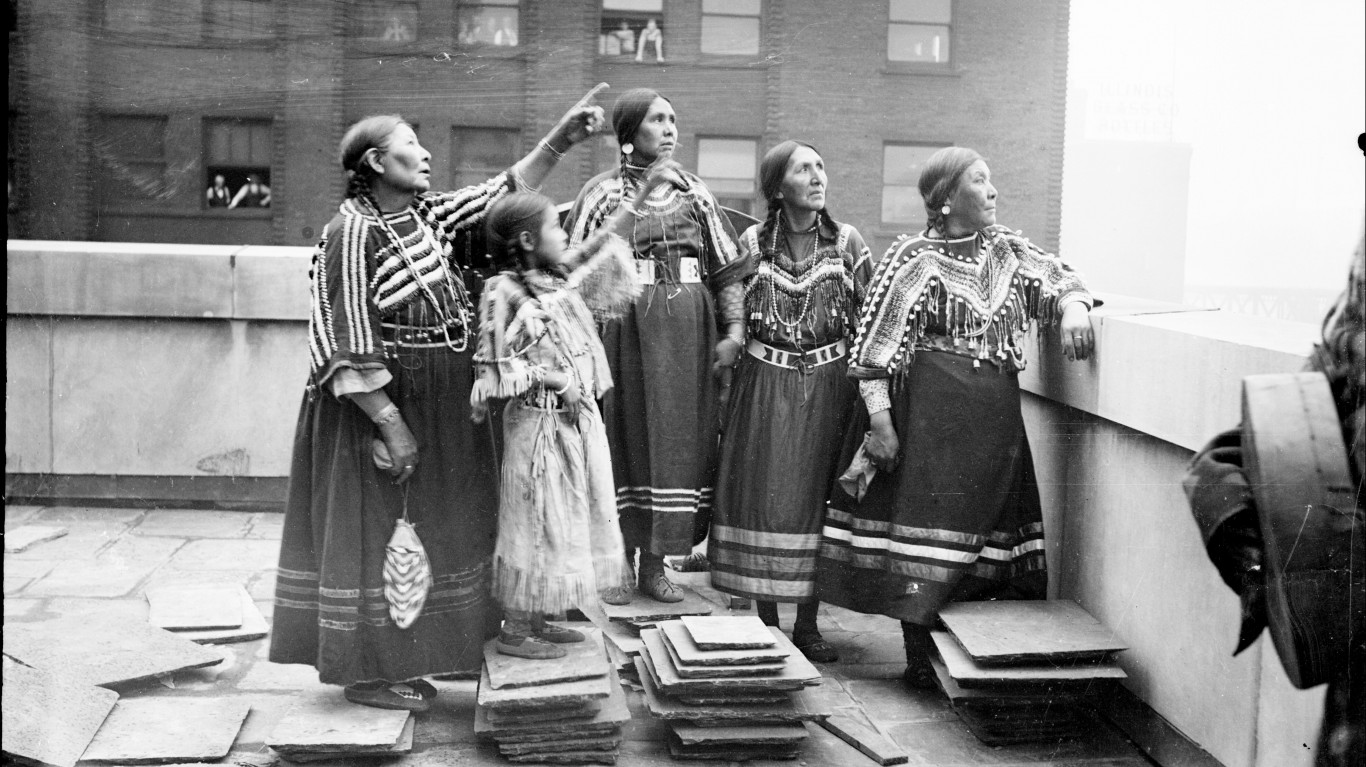
7. Illinois
The Illini tribe called themselves “illiniwek,” which translates to “best people.”
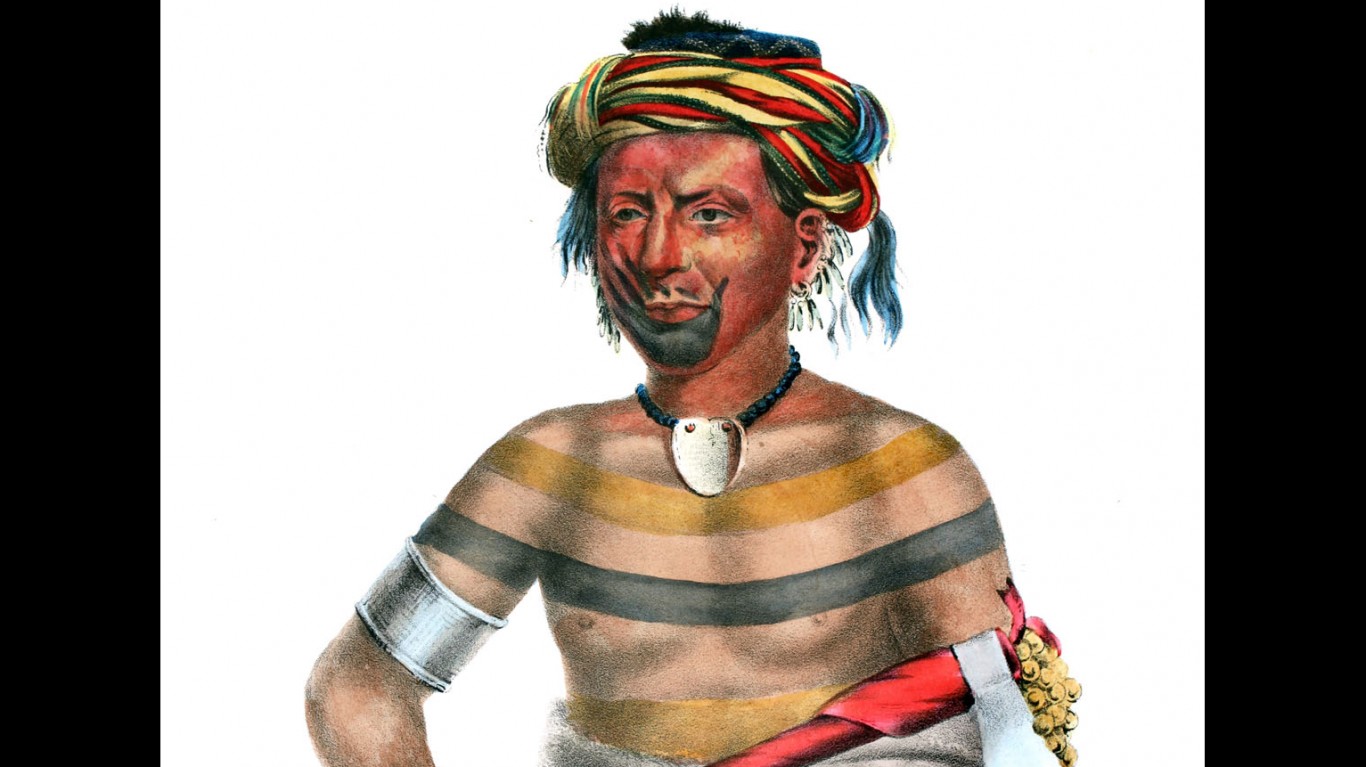
8. Iowa
Iowa is named after the Ioway tribe, who is native to the area. Ioway is an alternate spelling of ayuhwa, which means “sleepy ones.” Modern Ioway call themselves Baxoje, meaning “ashy heads,” and attribute the term ayuhwa to the Dakota Sioux, who called the Baxoje sleepy as a joke.
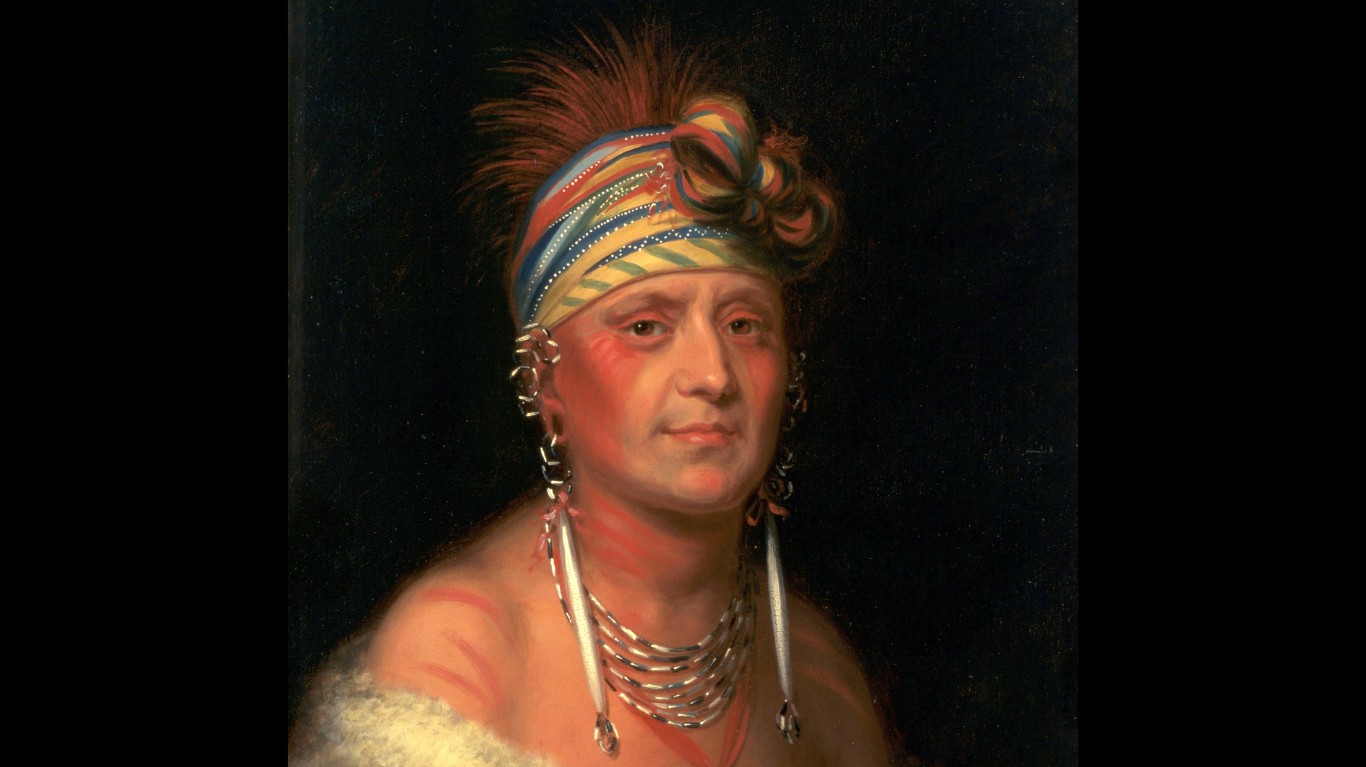
9. Kansas
Kansas is named after the Kansa tribe, who may have called themselves “people of the south wind.” Kansa is a shortened version literally meaning “south.”
[in-text-ad-2]
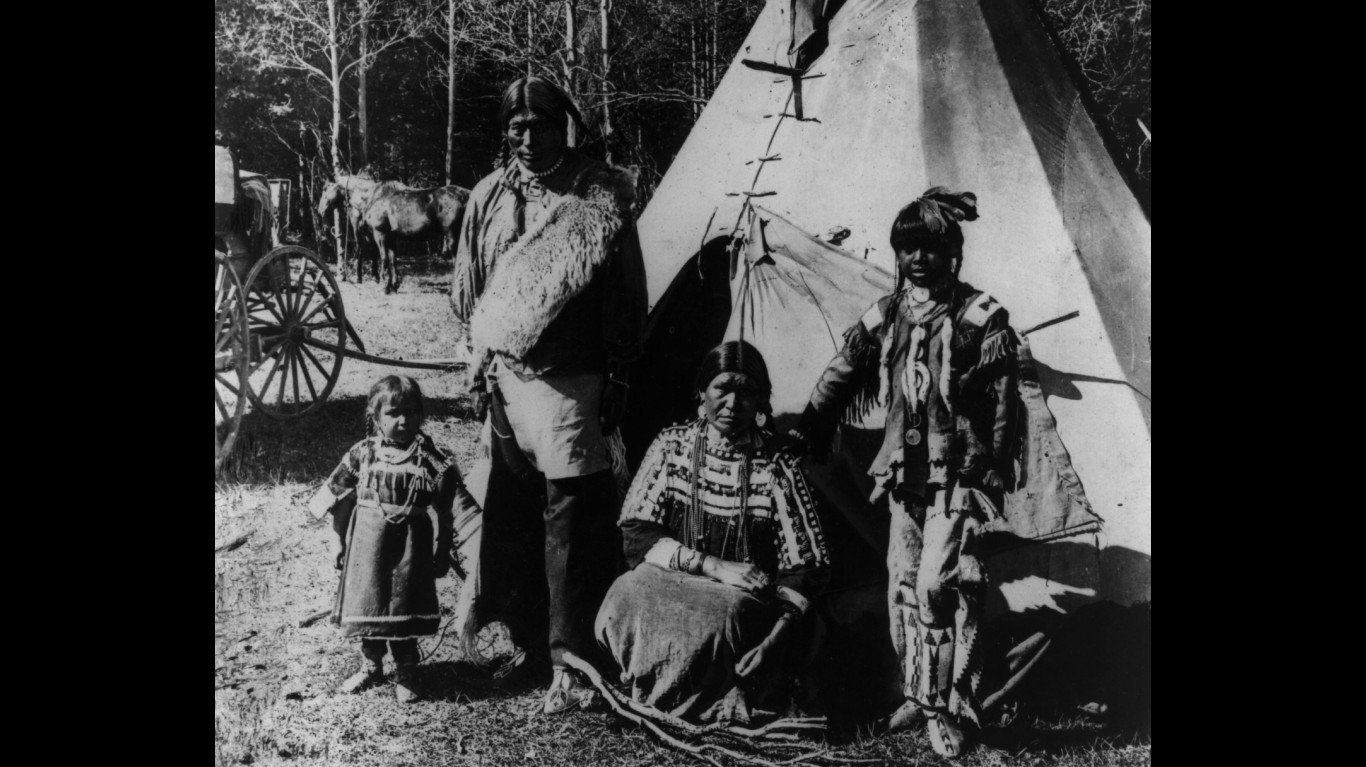
10. Kentucky
Kentake is an Iroquois word meaning “meadow land.” Some other Iroquois words that the state may have gotten its name from (no consensus exists) translate to “land of tomorrow” and “river of blood.”
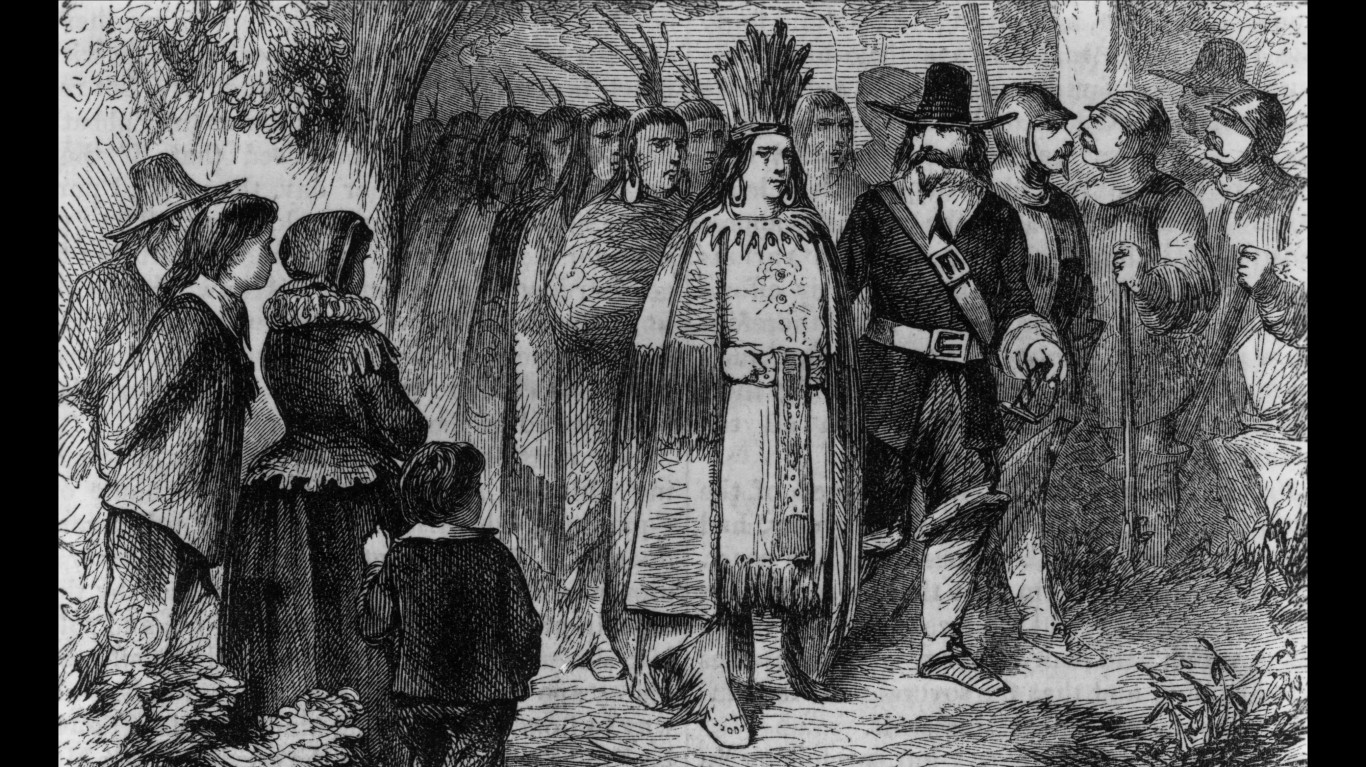
11. Massachusetts
Massachusetts is named after the Massachusett tribe. Their name is a Wampanoag word that translates to “by the range of hills” and refers to the Blue Hills outside of Boston.
[in-text-ad]
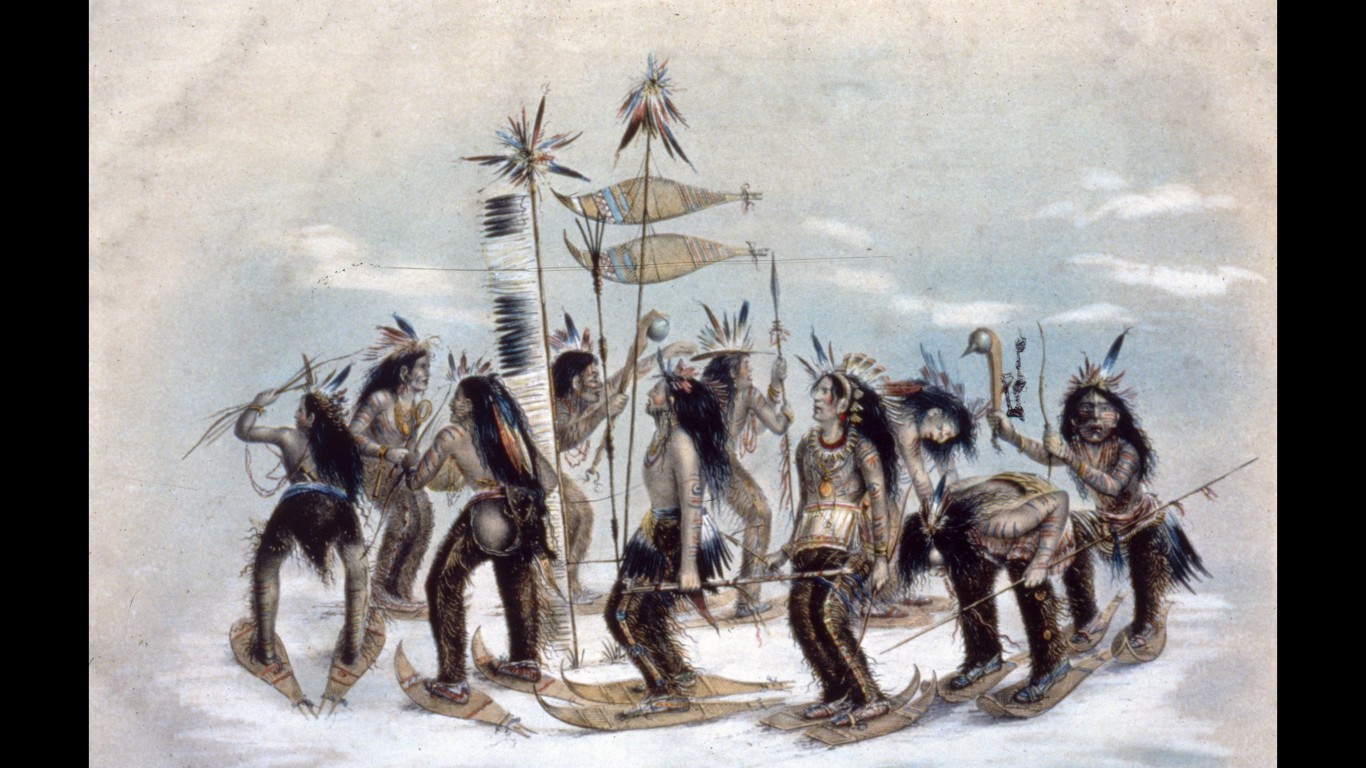
12. Michigan
Michigan comes from the Ojibwe name for Lake Michigan, misshikama, which translates to “great lake.”
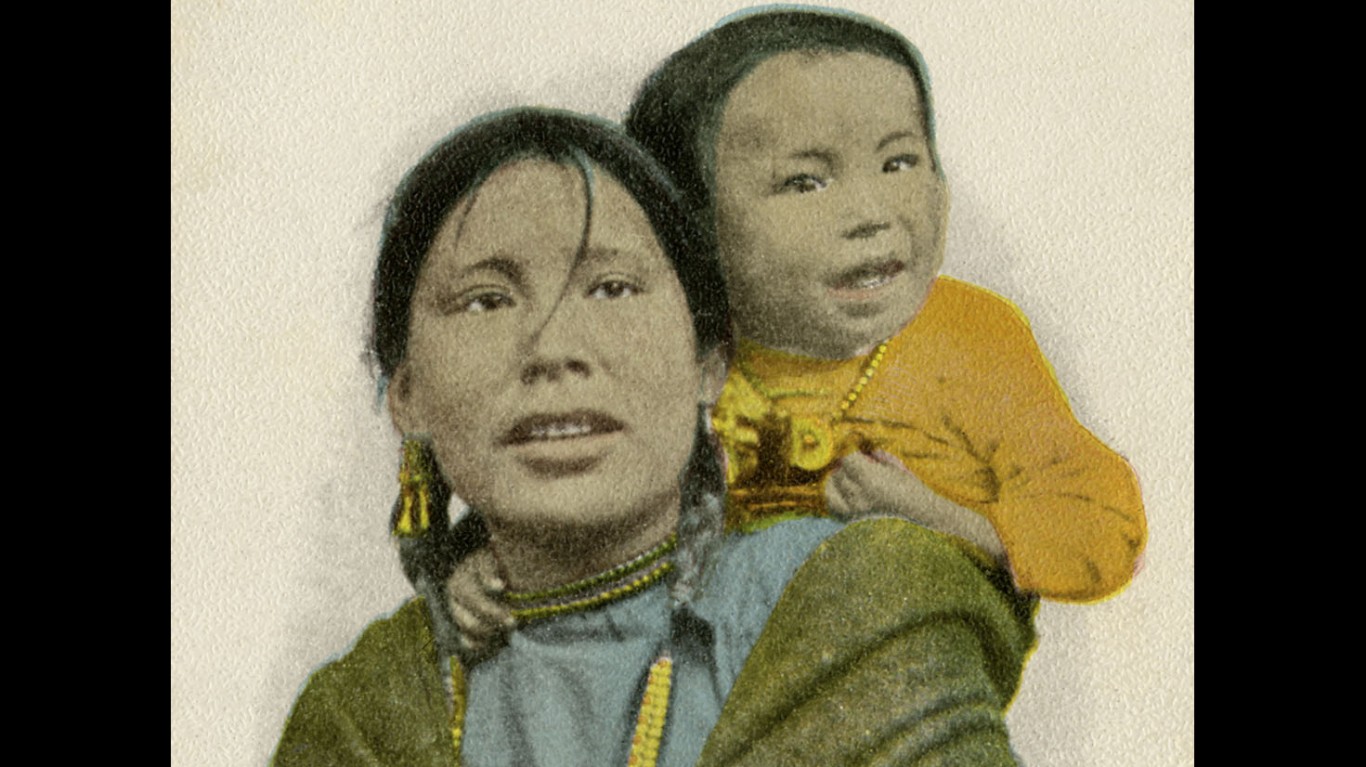
13. Minnesota
Minnesota is derived from the Dakota Sioux name for the Minnesota River, mnisota, which means “cloudy water.”
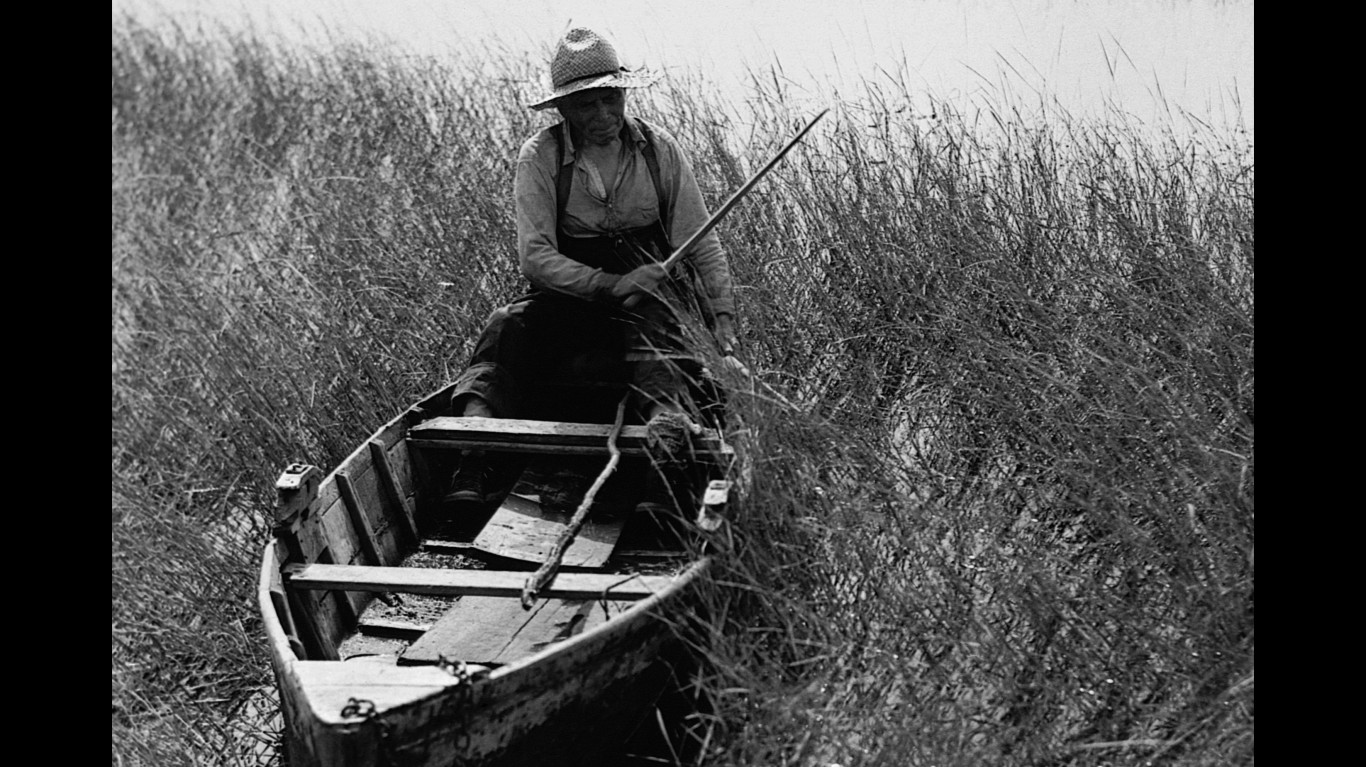
14. Mississippi
Named after the Mississippi River, Mississippi is a derivation of the Ojibwe name for the river, misiziibi, which means “great river.” The Ojibwe weren’t native to what is now Mississippi but rather to the area around the river’s headwaters in what is now Minnesota.
[in-text-ad-2]
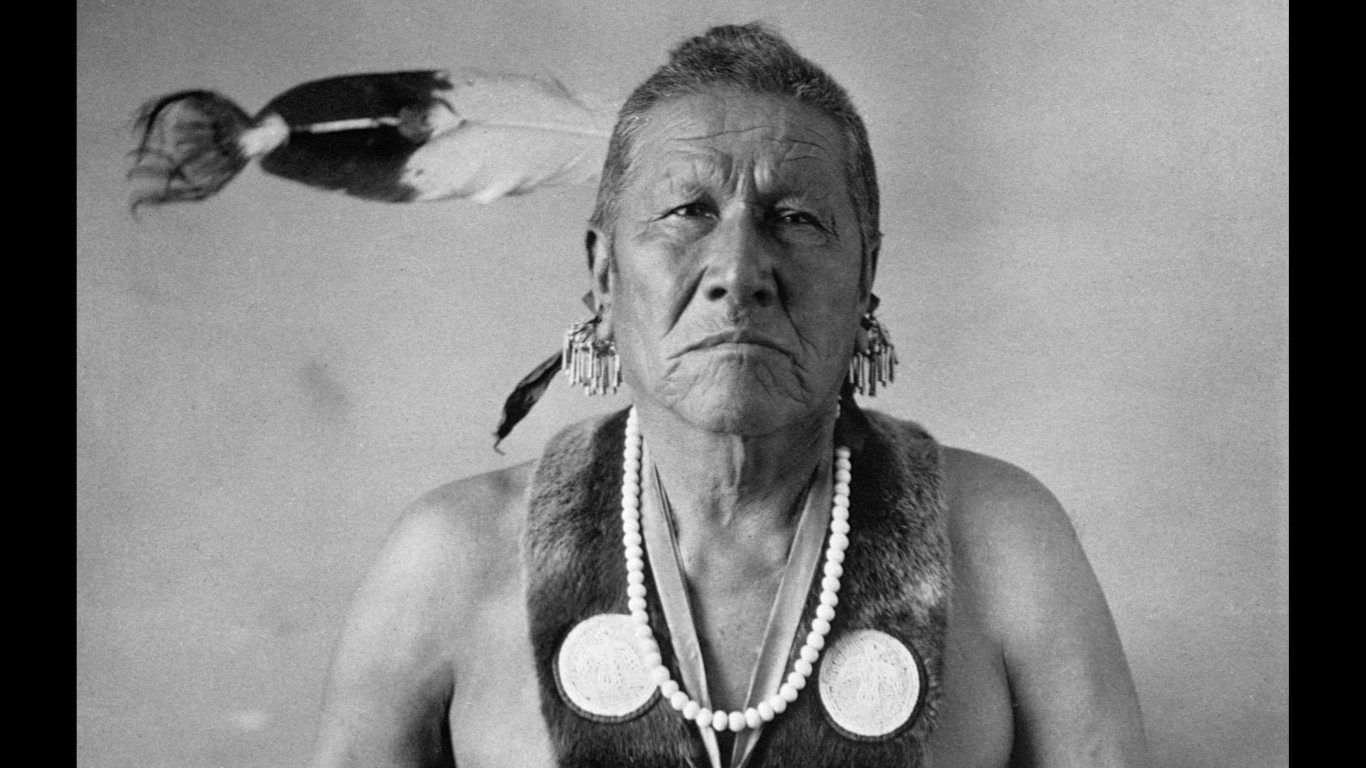
15. Missouri
Missouri is named after the Missouri people, a southern Siouan tribe. Their name is derived from the Algonquin word ouemessourita, which means “wooden canoe people.”
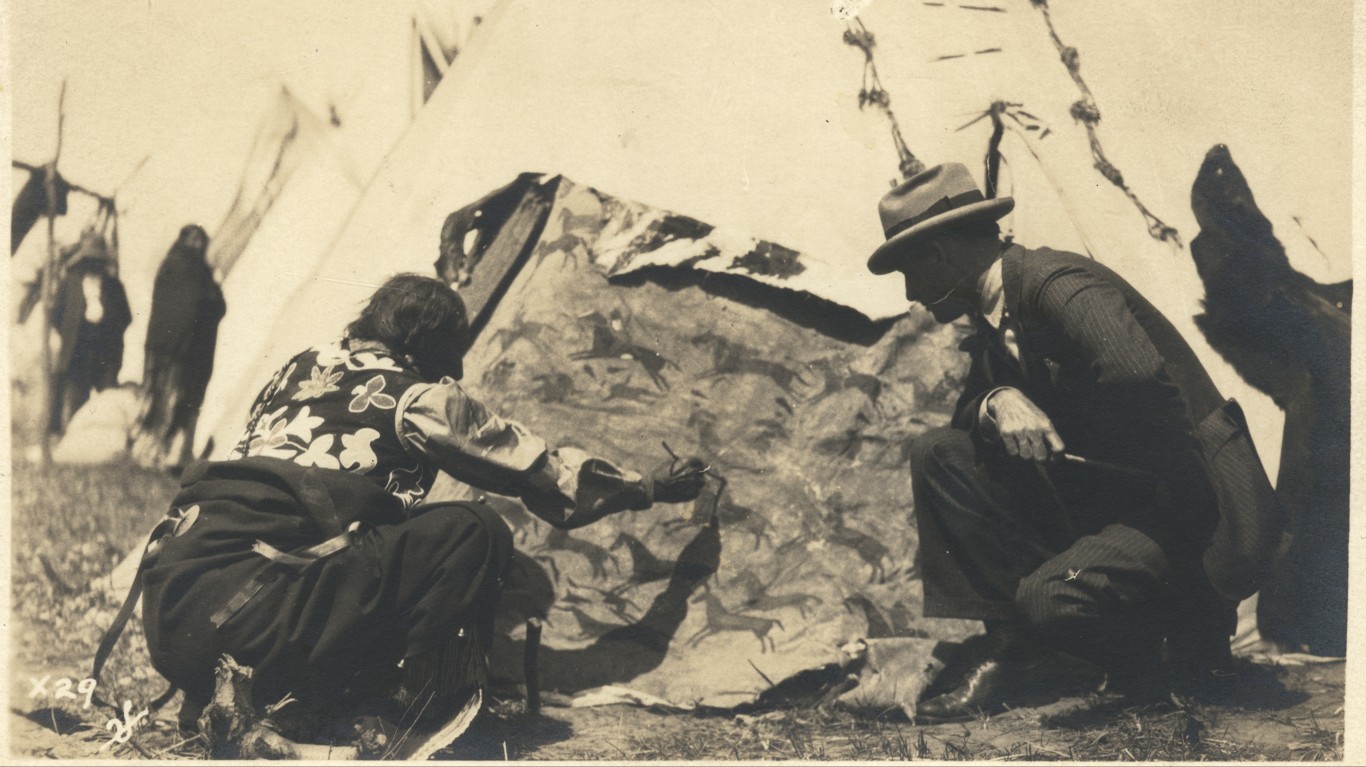
16. Nebraska
Nebraska is derived from the archaic Otoe word ñí brásge (“flat water”), which refers to the Platte River.
[in-text-ad]
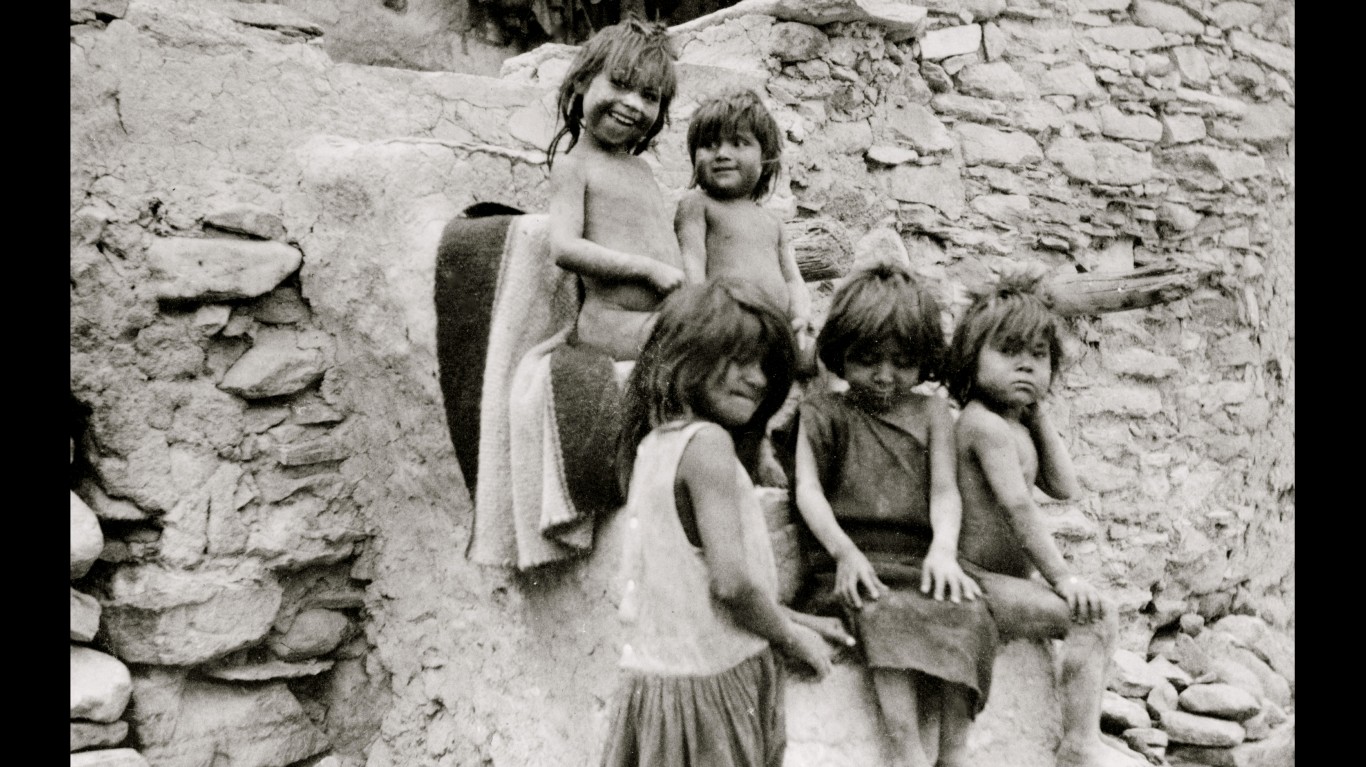
17. New Mexico
This state is named after Mexico, a derivation of the Nahuatl word mexihco, whose origins may translate to “place where the god of war lives” or “place at the center of the moon.”
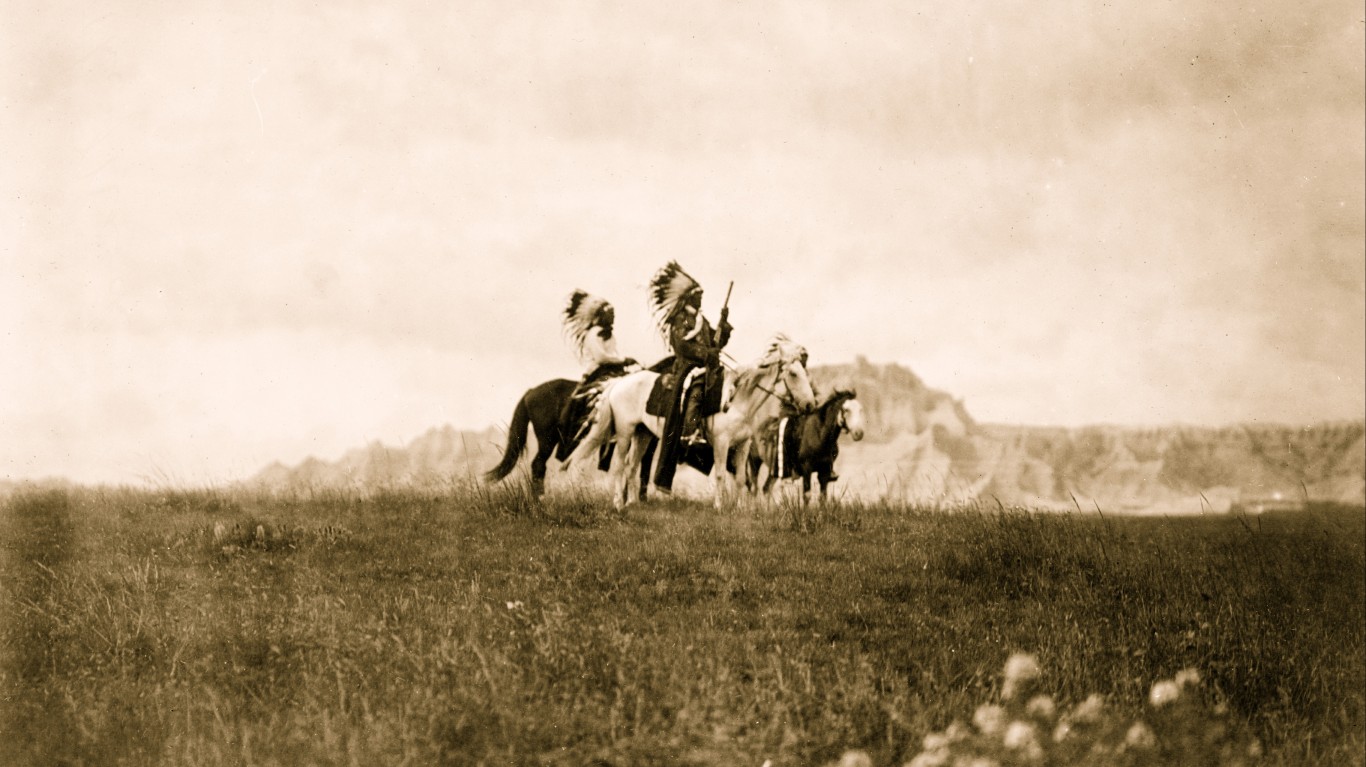
18. North Dakota
North Dakota is named after the Dakota Sioux. Dakota translates to “the allies.”
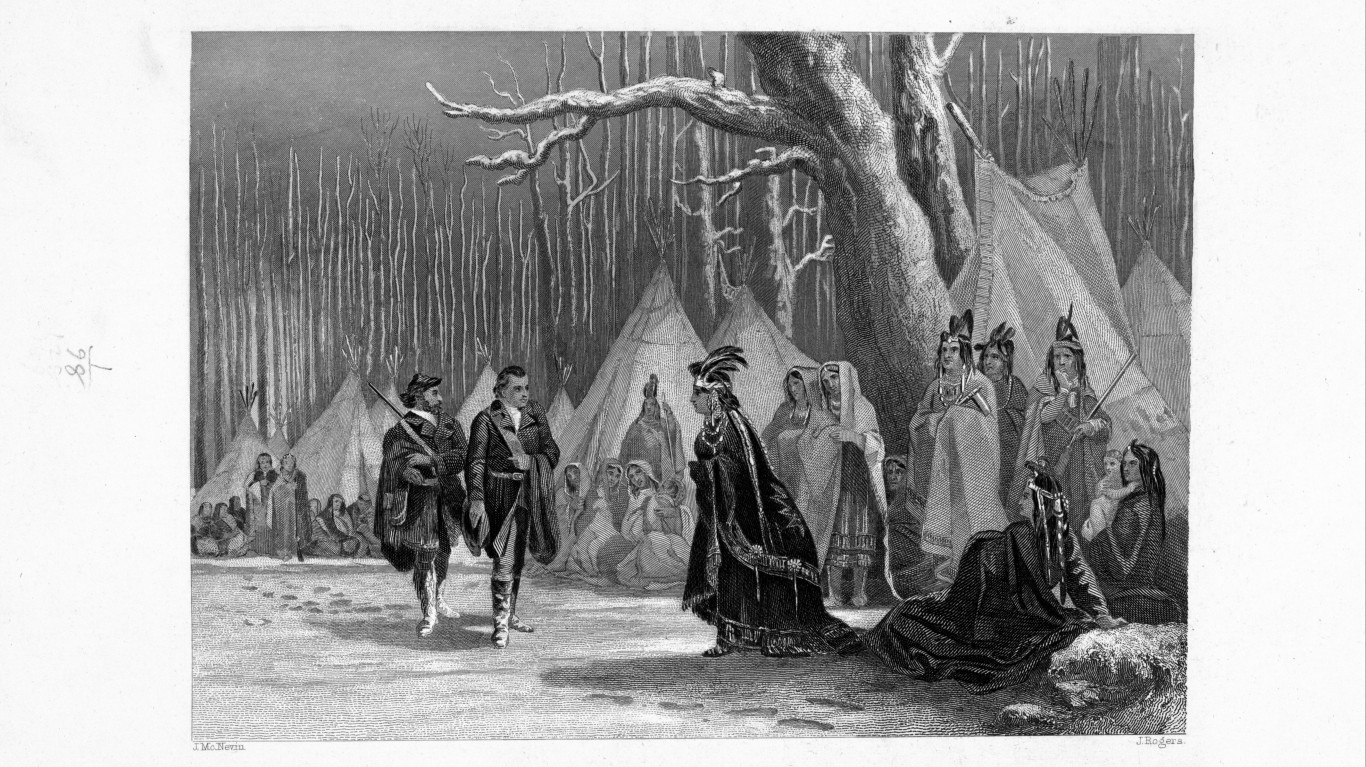
19. Ohio
The Seneca word for the Ohio River, ohiyo, translates to “it is beautiful.”
[in-text-ad-2]
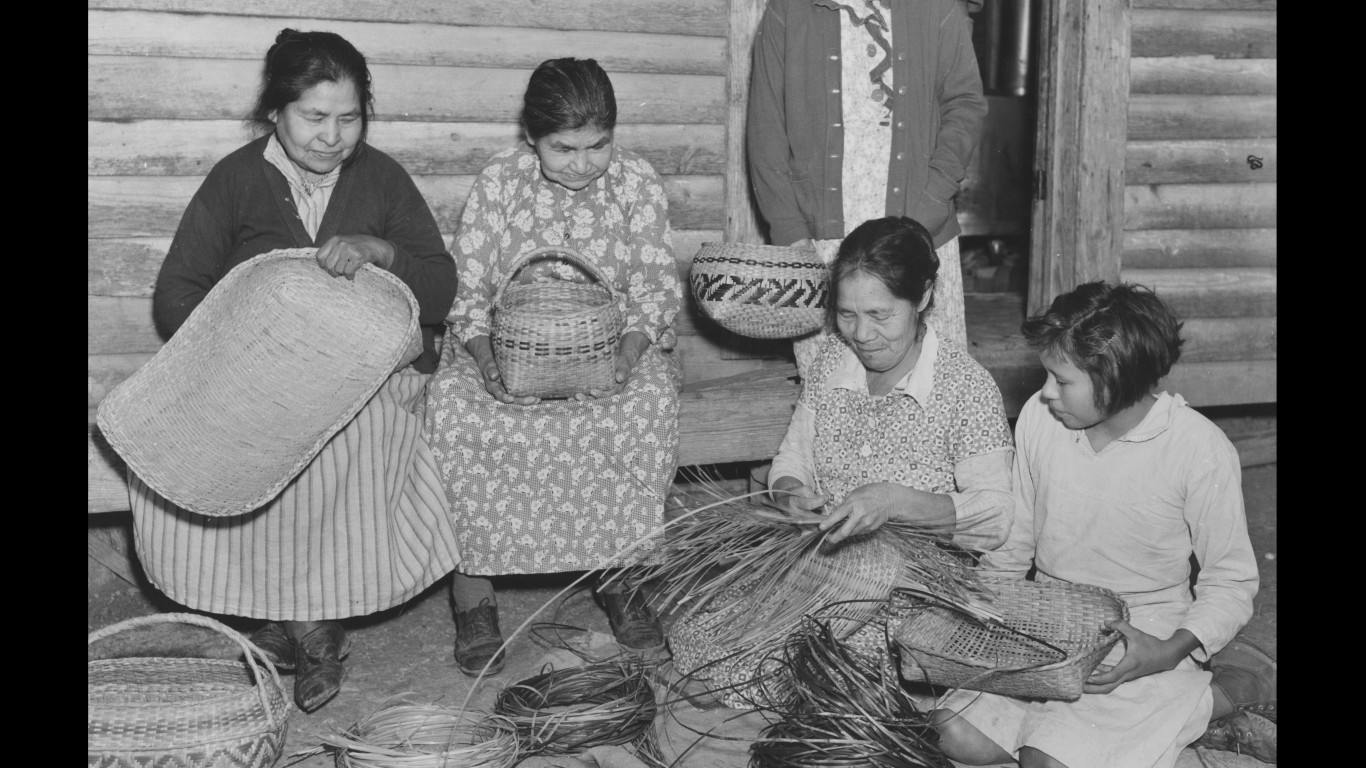
20. Oklahoma
A combination of the two Choctaw words ukla (“person”) and humá (“red”), the name was originally used by Choctaw Nation chief Allen Wright to refer to the “red nation” during treaty negotiations.
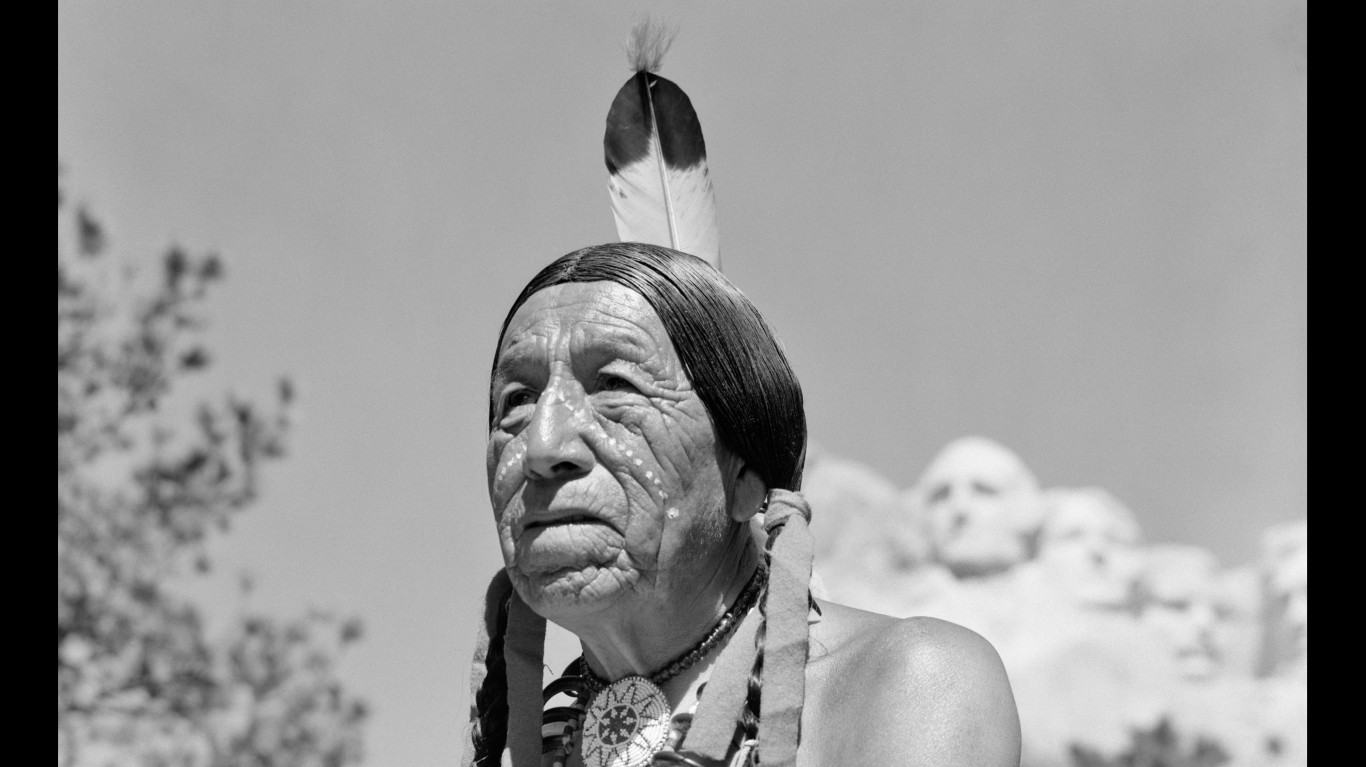
21. South Dakota
South Dakota is named after the Dakota Sioux. Dakota translates to “the allies.”
[in-text-ad]
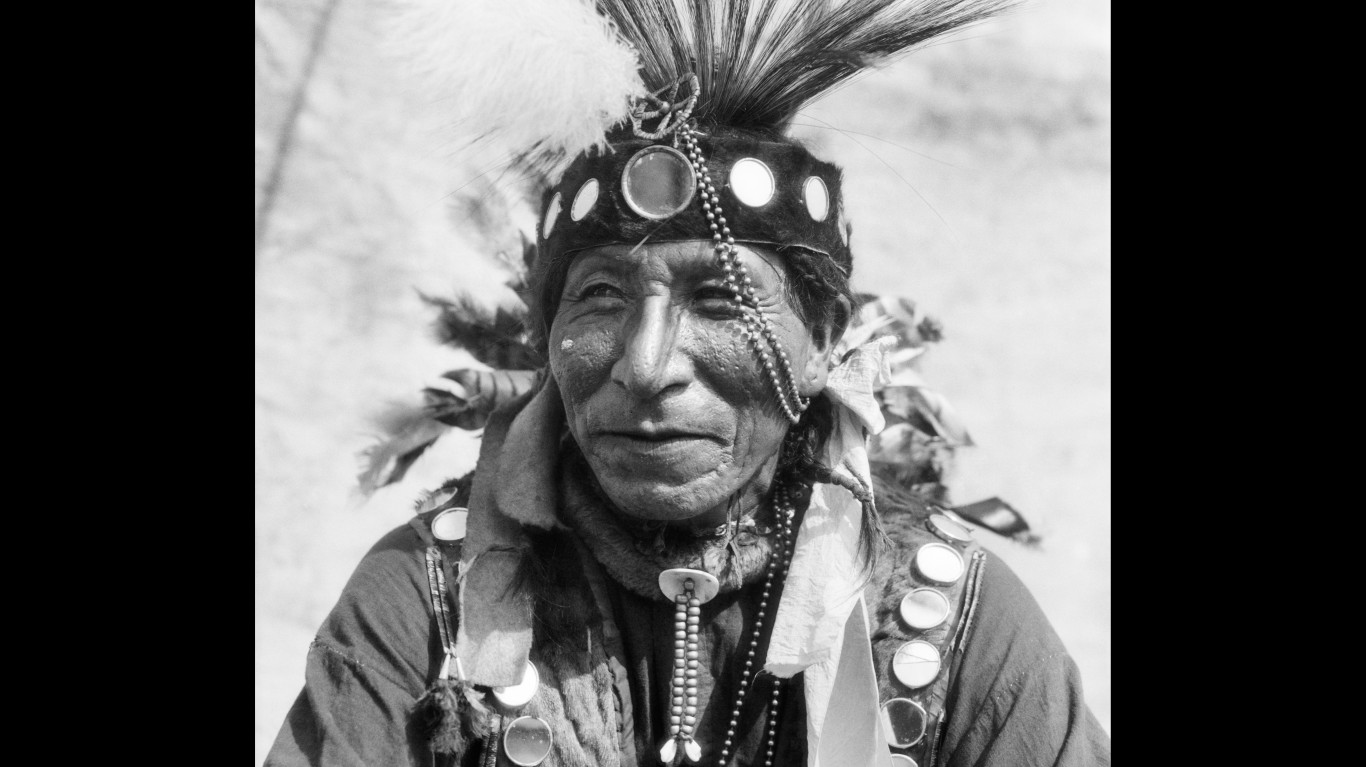
22. Tennessee
Tennessee is derived from the Cherokee word tanasi, which was a town in the area. Although the word tanasi has no direct Cherokee meaning, it may have been shortened from a longer word or named after a Cherokee person of unknown identity.
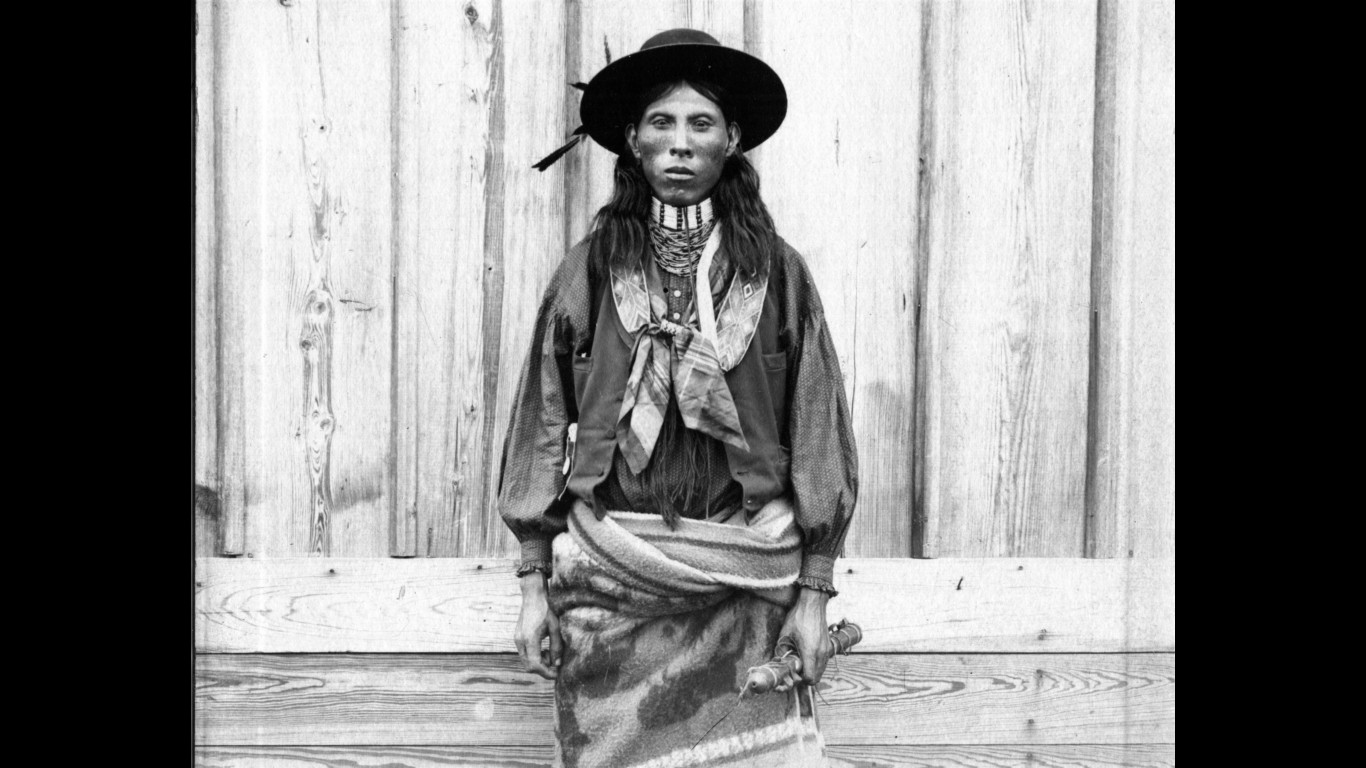
23. Texas
Texas is derived from the Caddo word taysha, which means “friends” or “allies.”
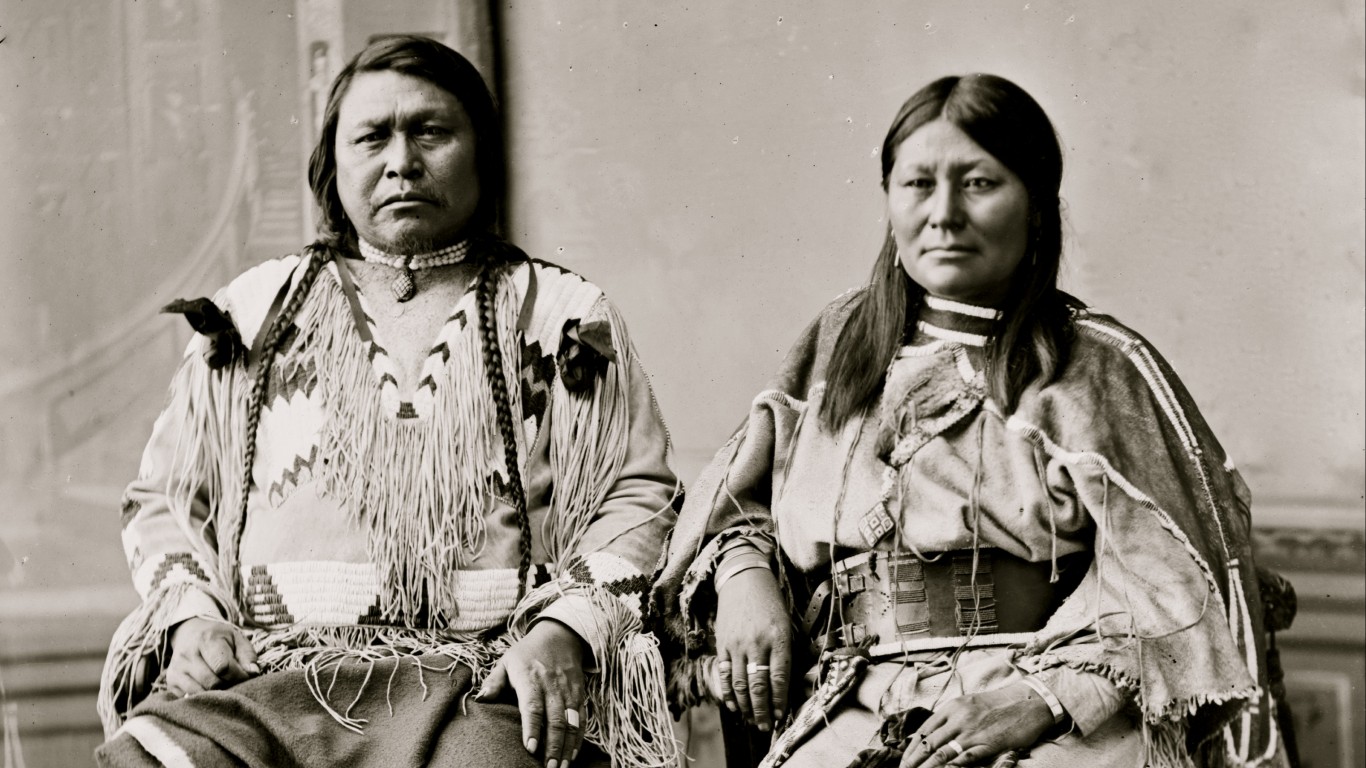
24. Utah
Utah is a derivation of Ute, a tribe native to the area. The Ute tribal name may have come from the Apache word yudah, meaning “they who are higher up.” The Utes refer to themselves as Noochee, meaning “the people.”
[in-text-ad-2]
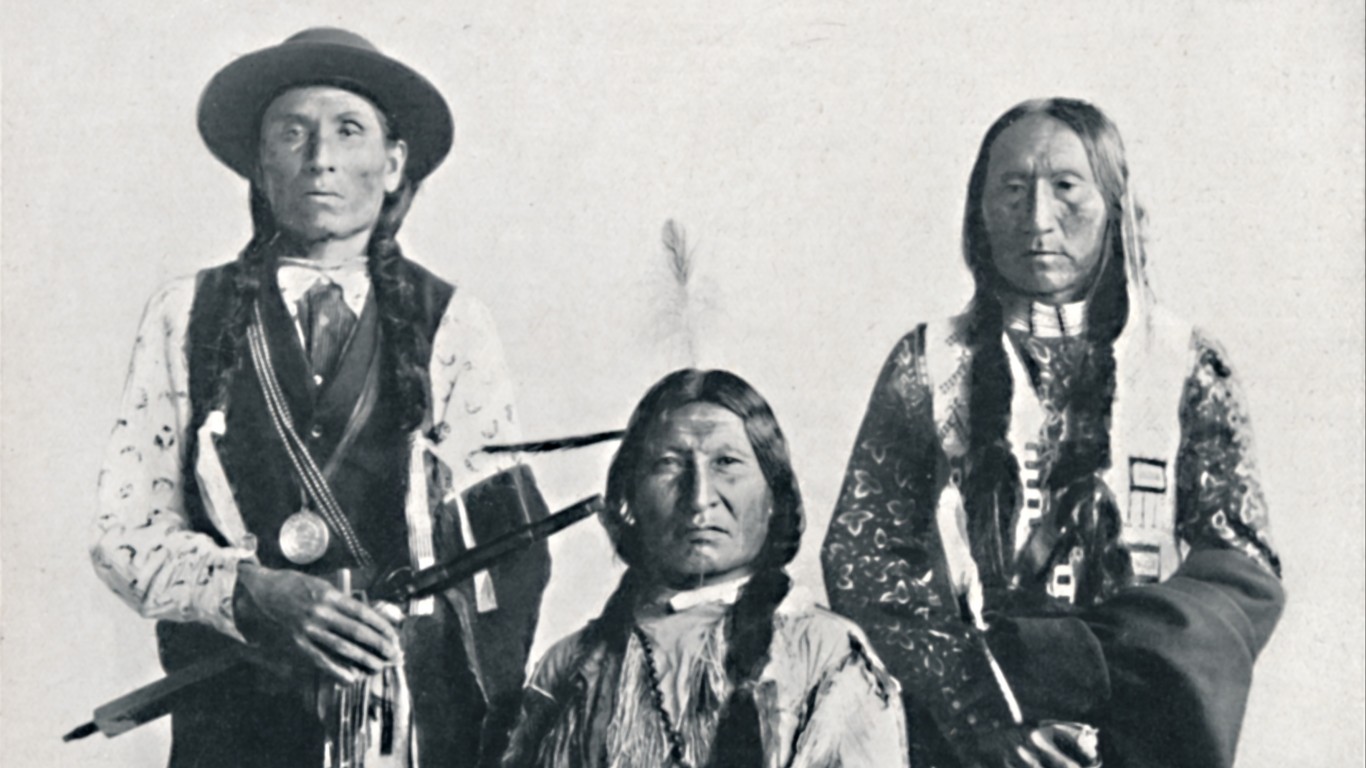
25. Wisconsin
The Algonquin name for the Wisconsin River is meskousing, which may have been adapted from the Miami word meskonsing, meaning “it lies red,” referring to the red sandstone along the river around Wisconsin Dells. The name was corrupted over the years into its current form, Wisconsin.
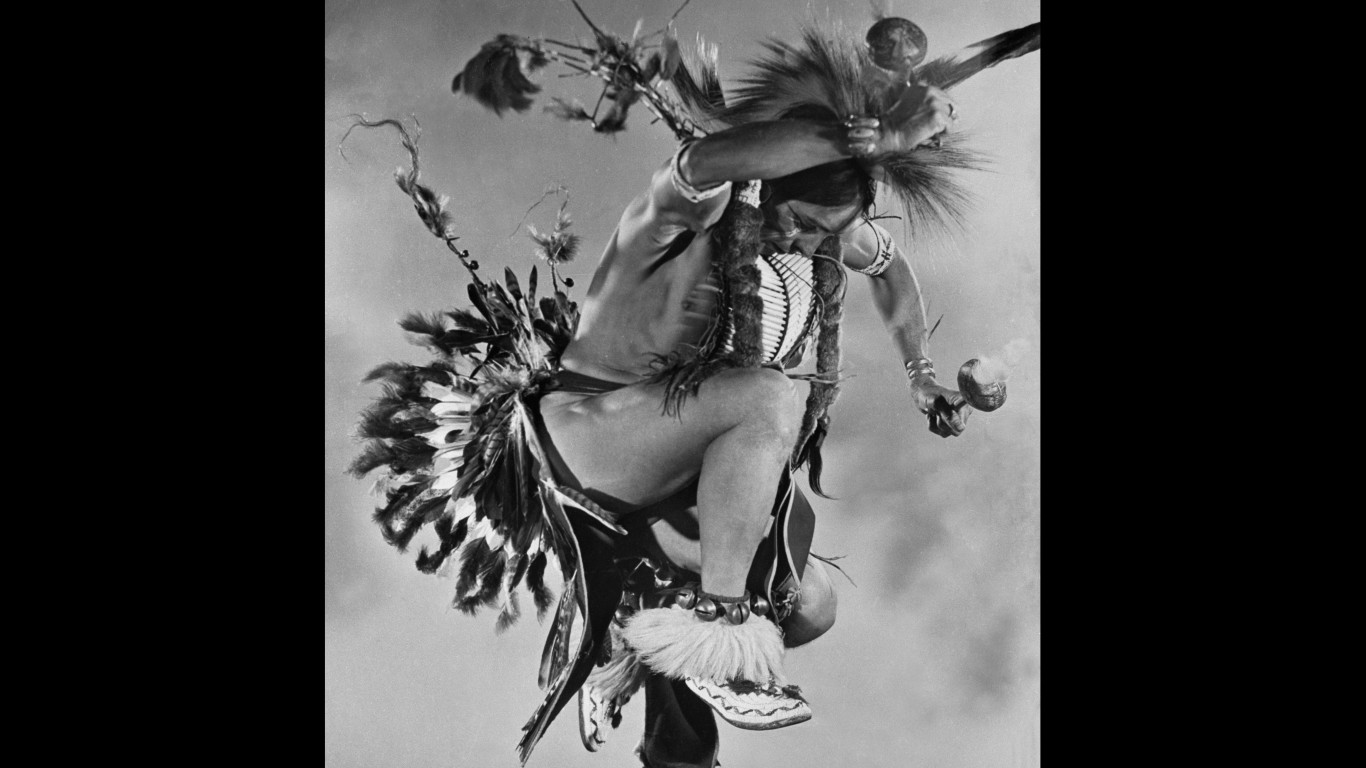
26. Wyoming
Wyoming comes from the Lenape word mecheweami-ing, which means “on the big plains.” But the Lenape lived in Pennsylvania and used the term to refer to their home valley. It seems white settlers appropriated the name when they came west.
It’s Your Money, Your Future—Own It (sponsor)
Are you ahead, or behind on retirement? For families with more than $500,000 saved for retirement, finding a financial advisor who puts your interest first can be the difference, and today it’s easier than ever. SmartAsset’s free tool matches you with up to three fiduciary financial advisors who serve your area in minutes. Each advisor has been carefully vetted and must act in your best interests. Start your search now.
If you’ve saved and built a substantial nest egg for you and your family, don’t delay; get started right here and help your retirement dreams become a retirement reality.
Thank you for reading! Have some feedback for us?
Contact the 24/7 Wall St. editorial team.
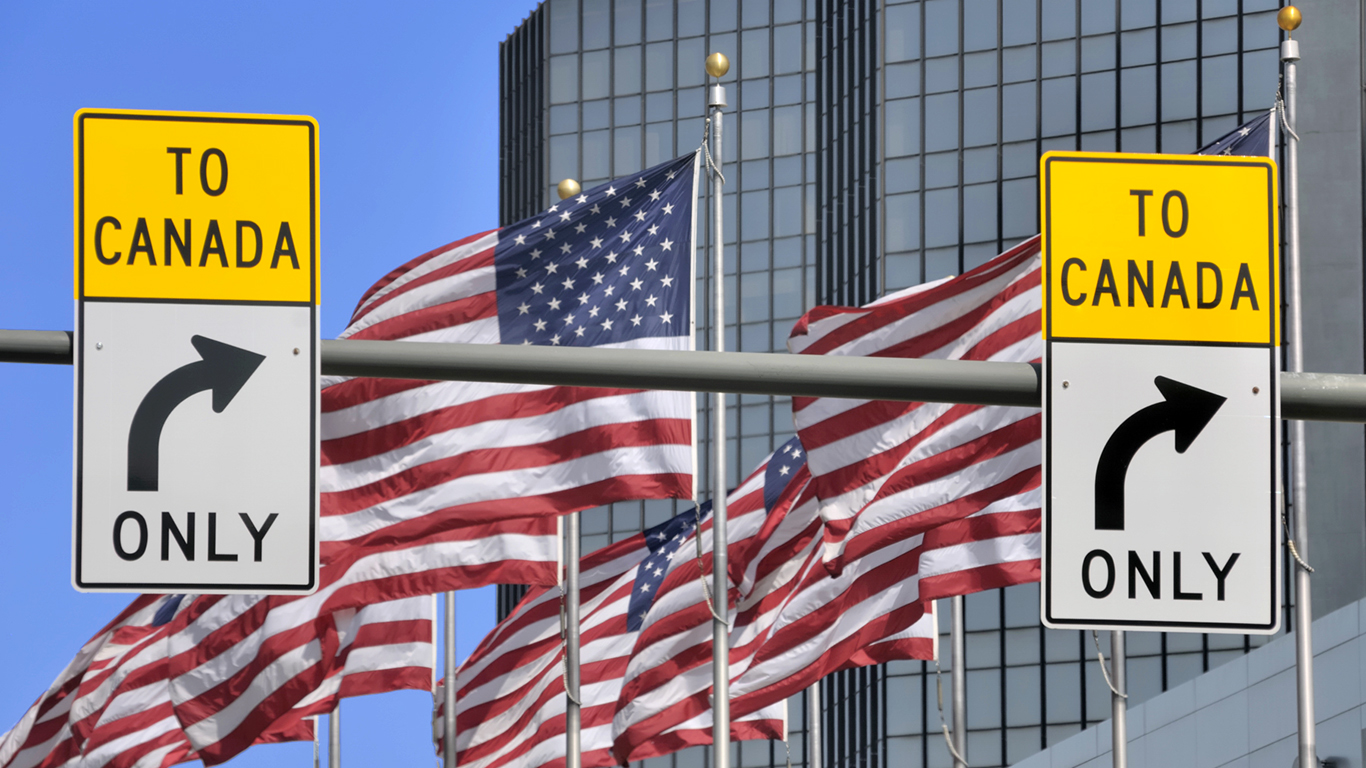 24/7 Wall St.
24/7 Wall St.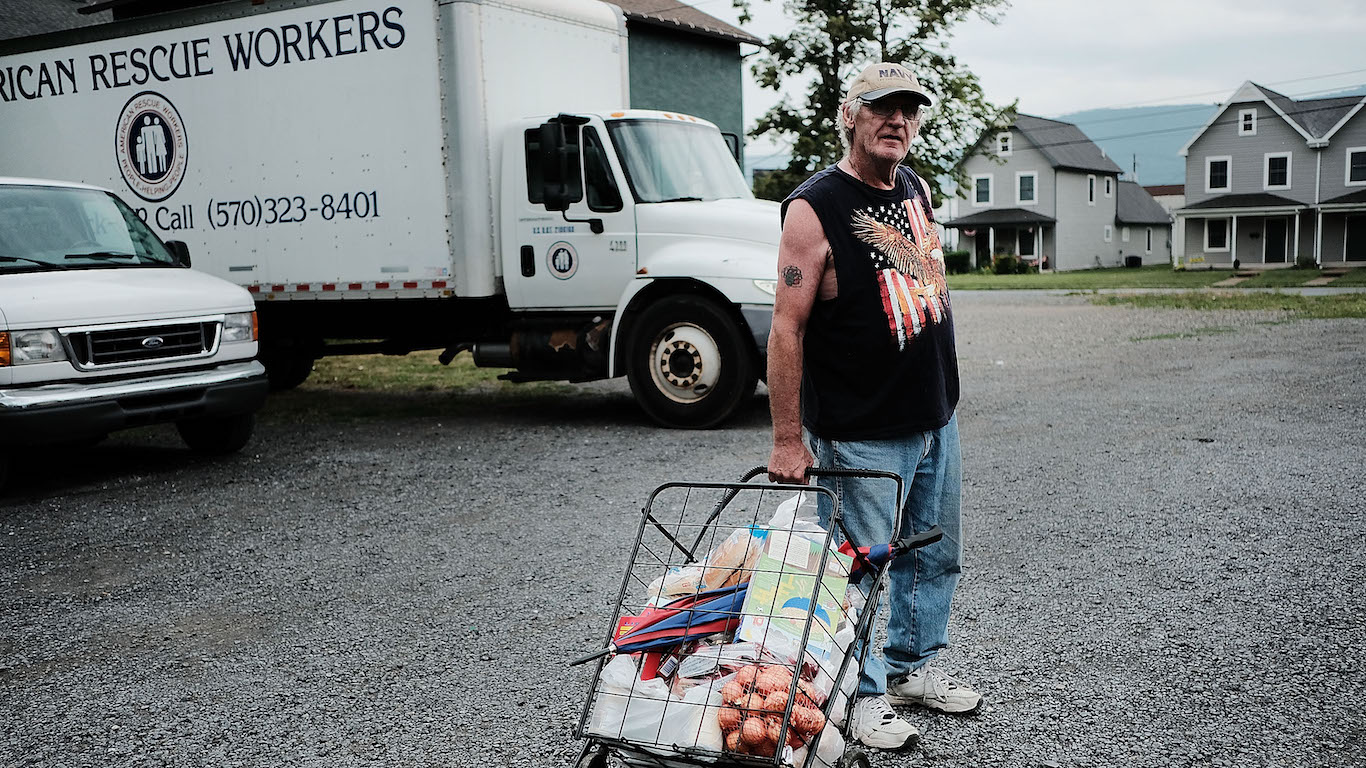 24/7 Wall St.
24/7 Wall St.